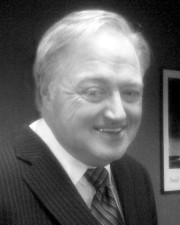
How to keep it going after being in the game over 25 years: Thriving at sales. At any age. - by Anthony Quaranta

The Q Group
I talk to many salespeople who have been at the game for 25, 35 years or more and are in the later years of their career. Some are now responsible for managing sales teams that may include veterans like themselves. They often get concerned when some of these professionals just don’t have the fire in them anymore. The numbers just aren’t there, nor the drive. But although it is true that some people don’t want to (or simply can’t) exert the same amount of energy they did when younger, it’s also true that many studies say that talk of “sales limitations” is simply a mind game.
No matter the industry, if you speak with people about performance versus projections, it almost always comes down to the 80/20 rule, also known as the Pareto principle, or the “law of the vital few” as coined by management consultant Joseph Juran. Basically, 20% of your salesforce is going to bring in 80% of the revenue. So, if you have ten salespeople, two are going to be exceptional, while six consistently hit their target, and the remaining two underperform.
I don’t necessarily subscribe to that thinking. But, unfortunately, many sales people do. That’s because they have assigned themselves a limit in their own head. They have put themselves in a box, thinking, “I made $90,000 last year so if I work really hard, I can make $100,000 or $110,000 this year. Exceptional salespeople don’t think this way. They refuse to look at past history as a benchmark for future success. They won’t settle for that. They want to keep it going—and growing. They’re looking for game changers that can change their lives.
Exceptional salespeople are constantly positioning themselves in the middle of big deals, and no matter their age or experience, they are your rainmakers. They’re the ones who know how to focus their efforts on where they’ll have the greatest impact. And, rainmakers don’t stop when they’re 50 or 60 or 70. In February, the Chicago Tribune published an article about Frank Whitesell who works as a sales associate for a Pennsylvania firm that sells promotional advertising products. Frank prefers face-to-face calls and often brings doughnuts to his customers. When it comes to the value of relationships, Frank said, “People don’t do business with companies. People do business with people.” By the way, Frank is 100 years old and has no plans to retire.
If you’re responsible for hiring salespeople, it probably goes without saying that you want to do your best to avoid those who are only going to generate 20% of your revenue. And, that comes down to hiring the best candidates. Traits to look for include:
• Resilience. Rejection is part of sales. Look for optimistic and confident people with the tenacity to keep going, no matter what transpired one hour or one week ago.
• Likeability. Even though many salespeople work independently, the best have excellent people skills and thrive on building relationships, not just with customers but with everyone they come in contact with. They’re good listeners, respectful, and empathetic. And they’re very, very patient.
• Marketing savvy. Successful salespeople know how to creatively integrate and communicate sound marketing strategies into their pitch. They are thoroughly knowledgeable about a product’s benefits (and shortfalls) and can articulate value in terms the prospect understands.
Perhaps you’re entering that time in your life, thinking more about what you want to do and if you really want to keep at this game. My advice? Take a close look and explore your options. Maybe you can try to coast and be an average sales person, maintain what you have with a little less effort. Or, you can rediscover that fire again and uncover what truly motivates you to be the best. And, keep this mind. Just last year, Time, Inc. released data that showed the top 50 professions with the highest rate of workers over the age of 65. Coming in at number five? Real estate brokers and sales agents.
The key for me is taking my years of experience and then leveraging that know-how with today’s time-saving technology. I focus on maximizing the revenue opportunities that are there, and, at the same time, coach younger people who are just starting in the industry. And, if you got it in you, you’re going to stick with it as well. And you’ll also know when it’s time to move on to your next adventure.
That’s Q from the street.
?Anthony Quaranta is the president of The Q Group, Hauppauge, N.Y.